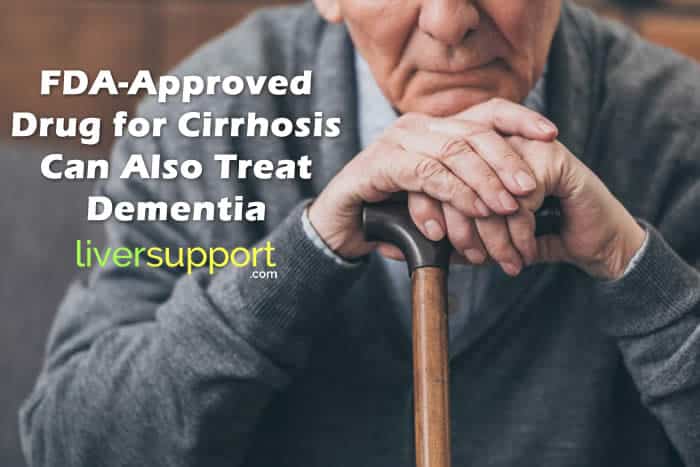
Previous
The Hidden Link Between Fatty Liver and Type 2 Diabetes

Next
Fast and Accurate Way to Detect Fatty Liver Disease
FDA-Approved Drug for Cirrhosis Can Also Treat Dementia
A common liver treatment is proving itself an effective tool in the fight against dementia.
New research from University of York in collaboration with University of Sheffield is indicating that a common liver treatment for cirrhosis may double as an effective treatment in slowing the progression of dementia.
Researchers used brain cells from rats and fruit flies to monitor the degeneration of neurons as related to Frontotemporal Dementia (FTD) (1). FTD is particularly alarming for its reputation as a neurological disorder that primarily effects of 45-65 year olds, making it one of the youngest skewing neurotically disorders.
Two Big Takeaways
- This new research is helping illuminate new proteins involved in the protections of neurons. The hope is that, in identifying each component involved in neurological oxidation and degradation, we aspire to influence and control the process. This is especially exciting when we apply the findings to neurological disorders which we know are the source of neuronal death and oxidative stress (2).
- The other important discovery by York and Sheffield researchers is that Ursodeoxycholic Acid, a drug that is already FDA-approved for the treatment of cirrhosis – and has very little toxicity – appears to be an effective treatment against Frontotemporal Dementia (1).
This is promising for those looking for a way to manage and slow the spread of FTD, but it is still not a cure.
Beyond the Research
While the recent discoveries are significant and researchers are excited to be able to repurpose an already approved drug, they’ve also indicated that, “The mechanism of action for this drug is currently unknown and the work we will now do to increase our understanding of how it works may help us lengthen and improve the lives of patients with FTD and potentially other neurodegenerative conditions too (2).”
Basically, we need to conduct more research to deepen our understanding of neurological degeneration.
But for any patients or caregivers dealing with FTD right now, Ursodeoxycholic Acid is a very thrilling and non-toxic treatment to explore.
FTD is in most cases a genetic disease, which means that now family members and patients can use this information to:
- diagnose earlier
- manage care
- and get prevention plans in place.
And, while this may seem like a small win in the big picture, it’s a key piece of research that further broadens our understanding of dementia and neurological disorders.
1. Melore, C., About the AuthorChris MeloreView Chris's article archive, Melore, A., & Archive, V. (2020, October 12). Common drug for liver disease may help treat dementia in younger patients. Retrieved October 16, 2020, from https://www.studyfinds.org/liver-disease-drug-ursodeoxycholic-acid-dementia/
2. Drug for common liver condition may be effective treatment for dementia and motorneuron disease, study suggests. (n.d.). Retrieved October 16, 2020, from https://www.york.ac.uk/news-and-events/news/2020/research/liver-drug-dementia/







Is this drug useful for someone in the middle stages of dementia and of the age of 81years ?